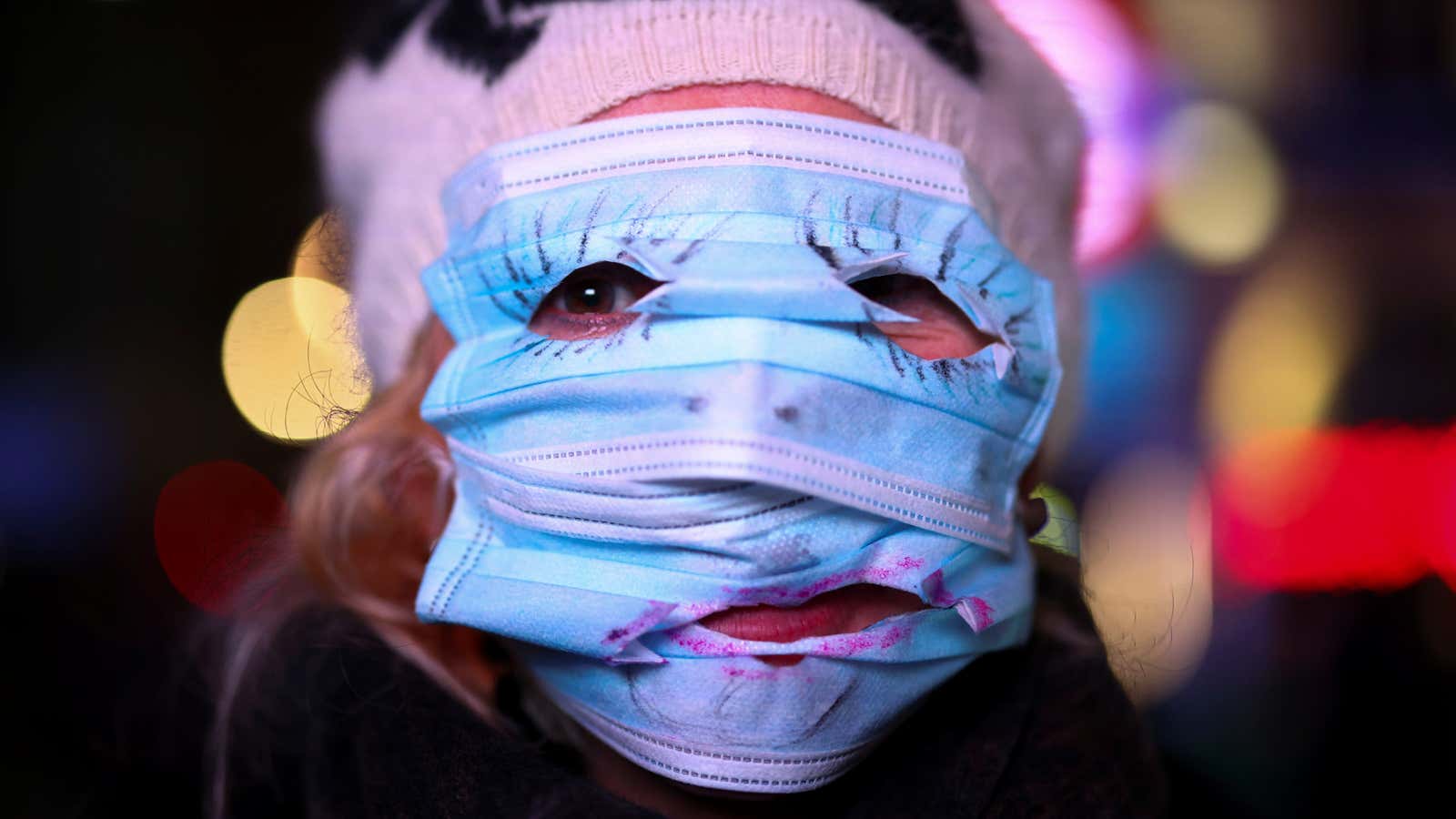In June US president Joe Biden said “America is headed into a summer dramatically different from last year’s—a summer of freedom, a summer of joy, a summer of get-togethers, and celebrations.”
Soon after, New York and California lifted nearly all restrictions tied to the pandemic, joining a majority of US states in no longer requiring that people wear masks in most places. New York City celebrated with fireworks near the Statue of Liberty.
The party may have been premature. This week (July 27), the US Centers for Disease Control and Prevention (CDC) said that, as the delta variant spreads in the US and other countries, fully vaccinated people should “wear a mask in public indoor settings in areas of substantial or high transmission” of Covid-19. (This map shows you where in the US those areas are.)
Do we still have to wear masks in the US?
In May, the CDC said fully vaccinated people could “resume activities without wearing a mask” except in specific circumstances like public transportation. (The CDC recommended that people who are not vaccinated wear masks, but in some states, the rules say masks aren’t required indoors regardless of vaccination status, and experts worry that the confusion will lead people to flout the rules.)
The change in guidance came as a surprise to many experts who felt it was too soon. The science isn’t yet clear on whether vaccinated people can transmit Covid-19, and not everyone can get vaccinated: The jabs aren’t approved for children under the age of 12—although they may be in the near future—and some vulnerable people, like those on certain kinds of immunosuppressive therapies, might not get as much protection from the vaccine as everyone else.
That’s why, in spite of the change in guidance, many people kept their masks on, at least indoors. “If people want to be extra careful, that’s fine,” said George Rutherford, director of the prevention and public health group at the University of California, San Francisco (UCSF). “There are certain people who have a lower chance of being protected by vaccination, and you have to worry about them, although what’s really going to protect them is to get everybody around them vaccinated.”
Regardless of vaccine status and the level of transmission of Covid-19 in your county, the CDC “recommends universal indoor masking for all teachers, staff, students, and visitors to schools.”
Should we keep wearing masks after Covid?
One of the lessons of this pandemic is that when people wear masks, wash their hands a lot, and stay six feet apart, all sorts of respiratory viruses get stopped in their tracks. In 2020, the number of flu cases, hospitalizations, and deaths were far lower than they typically are.
While we can’t all stay home forever—and children need to go to school—Rutherford hopes that “a couple of lessons will be learned” from this experience, namely, that people should wear masks when they are sick, and that they should continue to wash their hands often.
